‘I can’t breathe’: Star Jodie Comer stops Aussie play over New York air
Actress Jodie Comer has stopped Aussie playwright Suzie Miller’s hit play Prima Facie over hazardous air quality as smoke from Canada’s bushfires continued to shroud the city in smog.
Environment
Don't miss out on the headlines from Environment. Followed categories will be added to My News.
British actress Jodie Comer stopped her hit one-woman show Prima Facie on Broadway because of breathing difficulties due to New York’s air crisis.
Comer, who is currently starring in Australian playwright Suzie Miller’s acclaimed play, left the stage saying she was unable to breathe.
“I can’t breathe in this air,” she said, before being helped off stage.
A spokesman for the production confirmed the British actress’ distress.

“Today’s matinee of Prima Facie was halted approximately 10 minutes into the performance after Jodie Comer had difficulty breathing due to the poor air quality in New York City because of smoke from the Canadian wildfires,” a spokesman for the production said in a statement.
According to audience members, the award-winning star of Killing Eve, tipped to win a Tony award this weekend for her performance as a lawyer who has been sexually assaulted, was late for the matinee performance. After 10 minutes of the show, she announced that she couldn’t go on.
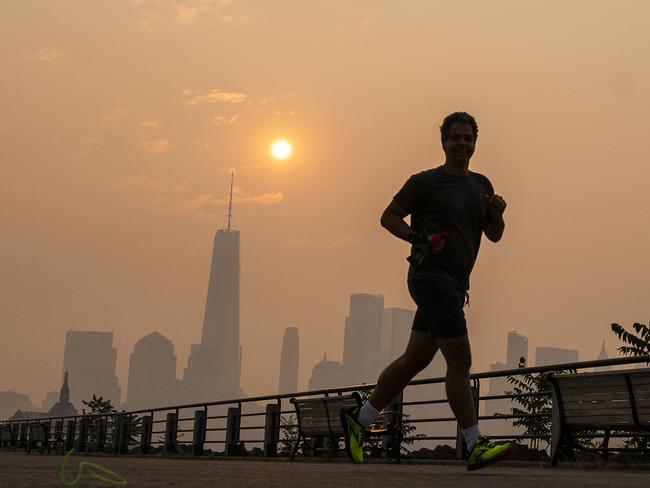
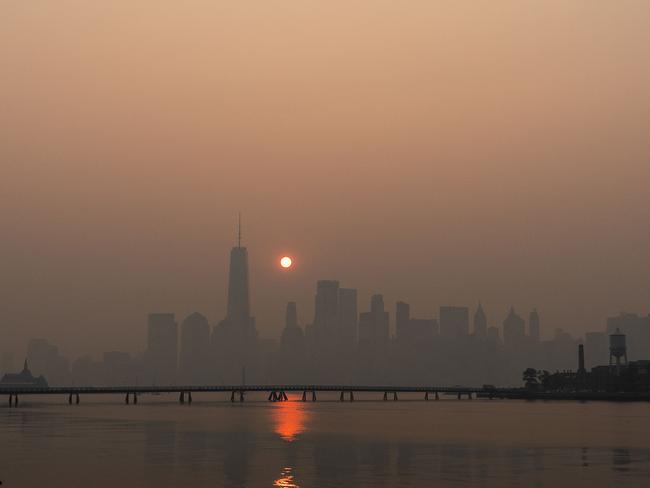
As reported by Deadline, after Comer left the stage, the audience was informed an understudy would be taking over.
Miller’s play has been a hit in New York with Comer receiving rave reviews.
It wasn’t the only play affected by New York’s hazardous air.
Performances of Hamilton and Camelot were also cancelled hours before curtain call due to the air difficulties caused by smoke from huge fires in Canada.
“Tonight’s performance of Hamilton will not go on as scheduled,” Shane Marshall Brown, a spokesman for the production, said. “The hazardous air quality in New York City has made it impossible for a number of our artists to perform this evening.”
SMOKE CAUSES HEALTH CRISIS IN NYC
Earlier this week, smoke from hundreds of bushfires burning out of control in Canada have caused record air pollution that is swamping most of the United States and putting millions of people under health warnings.
In Manhattan, where the atmosphere is usually improved by fresh air drifting down from its northern neighbour Canada, wildfires raging in British Columbia, Quebec, and Nova Scotia have turned the air of New York City into a brown and orange health hazard, the likes of which has never been recorded.
On Thursday LaGuardia Airport grounded incoming flights for the second day due to poor visibility.
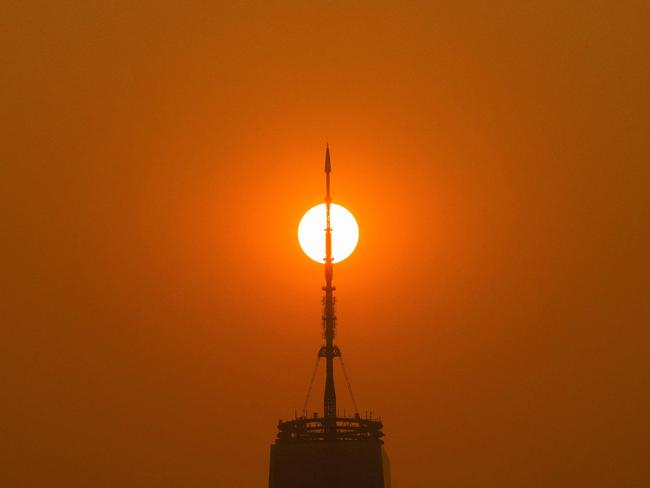
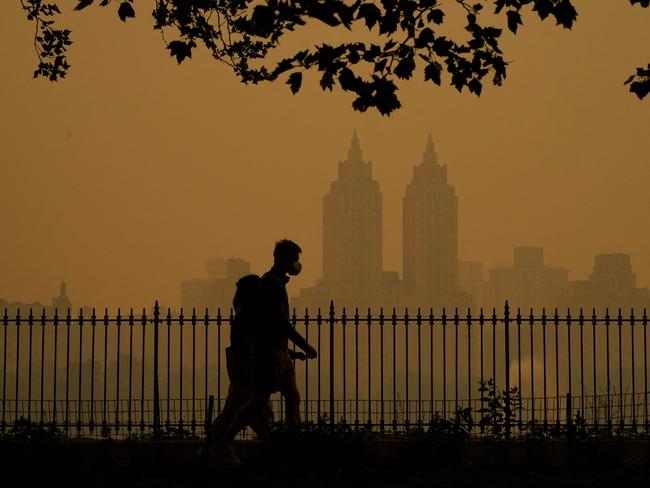
The devastating fires have displaced more than 20,000 people and scorched about 3.8 million hectares of land in Canada, where Prime Minister Justin Trudeau described this wildfire season as the country’s worst ever.
More than 100 million people across the northeastern United States, and extending west to Chicago and south to Atlanta, were under pollution warnings after the smoke drifted hundreds of miles from Canada, the US Environmental Protection Agency (EPA) said.
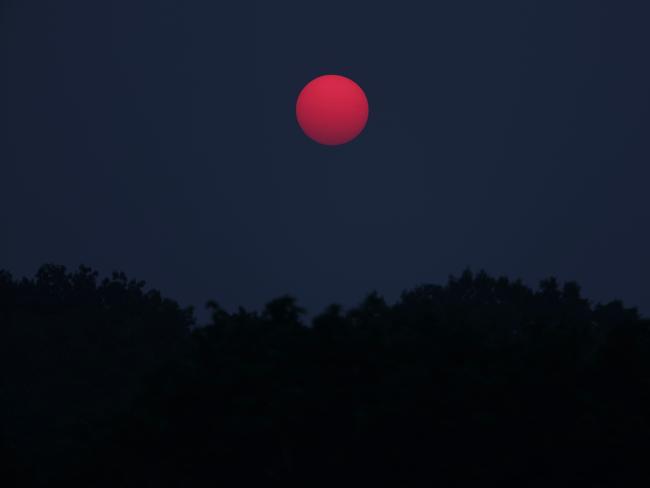

The smoke that has spewed from the fires in Canada is “exceptionally rare” and “extreme”, said Ryan Stauffer, a NASA scientist specialising in air pollution.
The conditions are expected to last for at least two more days and have alarmed experts because the Northern summer has barely begun.
“In the last 20 or 25 years, the only event that comes even close to what we’re seeing in the past few days was a very similar situation on July 7 and 8, 2002,” Stauffer told AFP.
“And that was … maybe even an eerily similar set up, where there were new wildfires in Quebec, this smoke streams directly into the northeastern of the United States.
“That is the top most polluted, in terms of this particular matter, date on record. … So this is exceptionally rare … It’s really just an extreme event.”
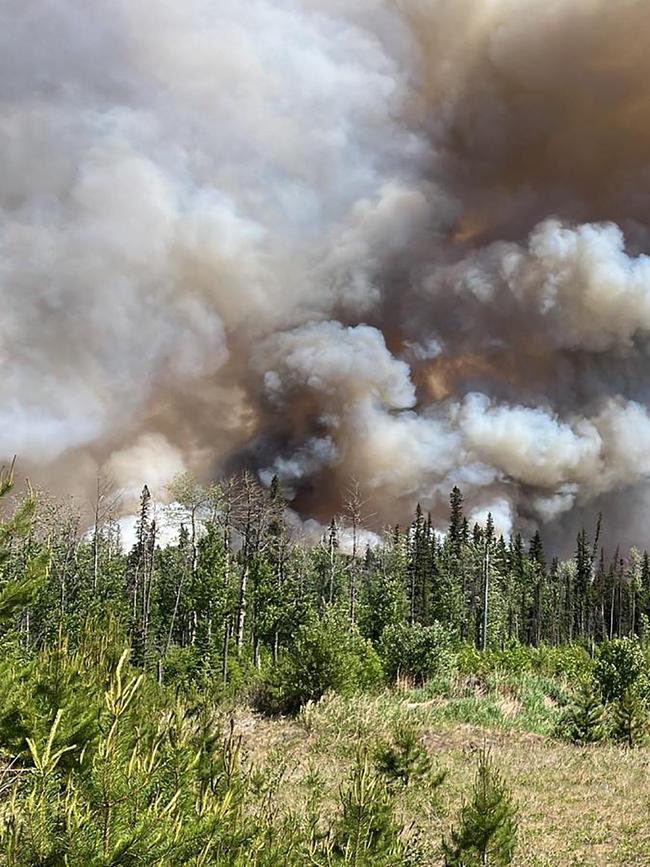
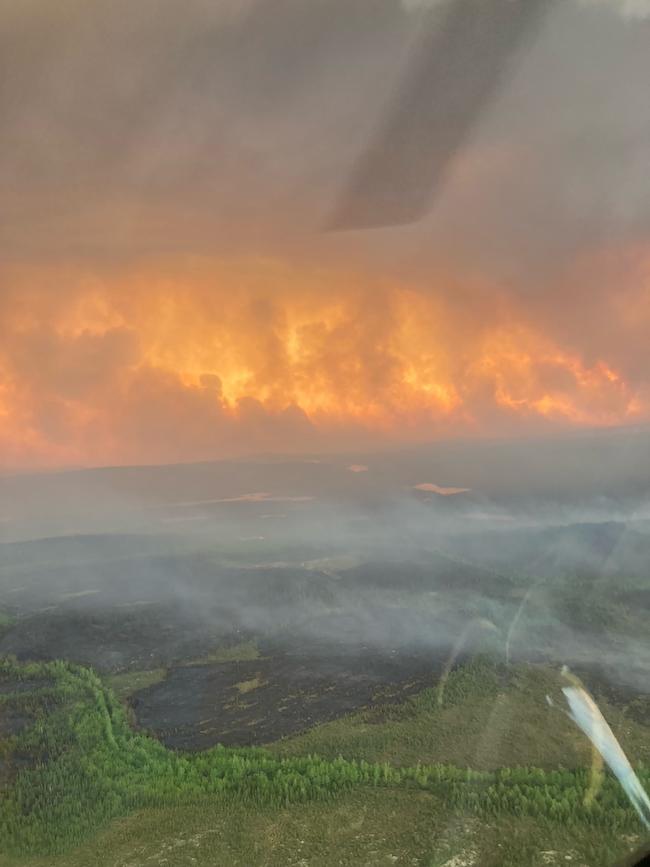
“The really unique aspect is that the wildfires that have erupted in Quebec over the past several days, the weather pattern is such that there’s a big high-pressure system over central Canada, and there’s a big low-pressure system off the coast of the northeast United States. And so those two weather systems combined are driving winds out of the north and allowing the smoke from these fires to stream directly into the northeast and mid-Atlantic United States.”
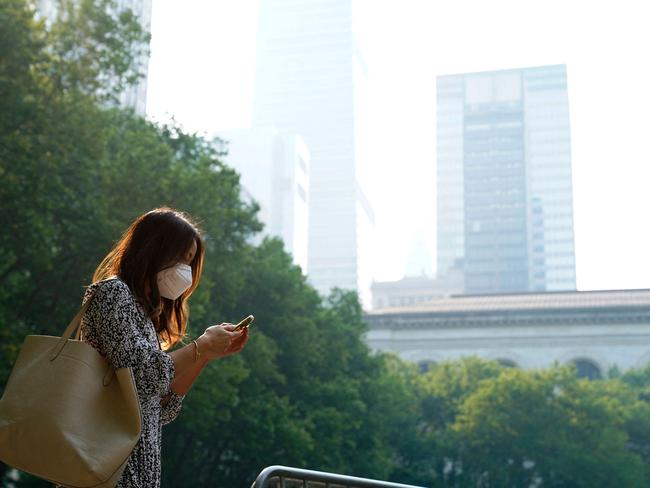
Millions of Americans are under health warnings with pollution at “code red” levels.
For the second day, authorities are warning people, including healthy adults and children, to avoid outdoor activities and to wear their N95 coronavirus masks again.
The thick smoke wafting down from Eastern Canada is releasing “countless” dangerous particles in the air, doctors say that may trigger fatal ailments.
The smoke carries particulate matter that can damage the lungs, heart, and enter the bloodstream and cause heart attacks and stroke, according to experts.
Authorities are expecting hospitals to be under siege once more.
US president Joe Biden has pledged Canadian leader Justin Trudeau 600 firefighters.
EU nations offered to send nearly 300 firefighters to help Canada battle the blazes, European Commission chief Ursula von der Leyen said Thursday.
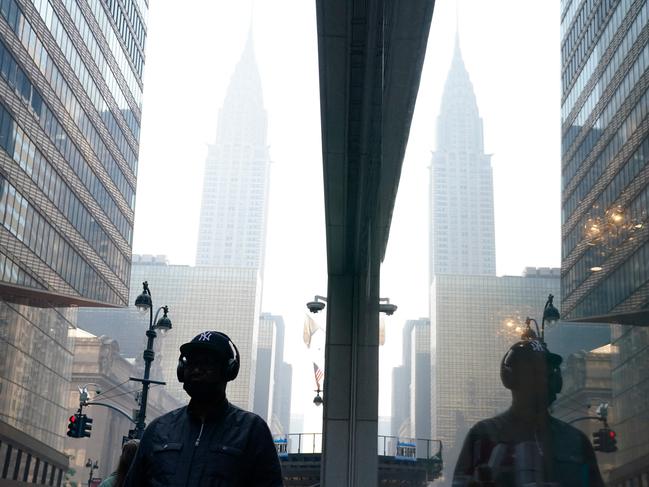
Mr Biden spoke with Mr Trudeau on Wednesday and offered “additional support to respond to the devastating and historic wildfires,” according to the White House.
Mr Trudeau said he had thanked Mr Biden, tweeting: “These fires are affecting everyday routines, lives and livelihoods, and our air quality.
“We’ll keep working … to tackle climate change and address its impacts.”
Global warming is occurring at an unprecedented rate of over 0.2 degrees Celsius per decade, according to more than 50 top scientists.
Massive wildfires such as those burning across much of Canada will only contribute to the record-high greenhouse gas emissions.
From 2013 to 2022, “human-induced warming has been increasing at an unprecedented rate per decade” they reported in a peer reviewed study aimed at politicians and policymakers. World leaders will be confronted with the new data at the COP28 climate summit later this year.
– With AFP




